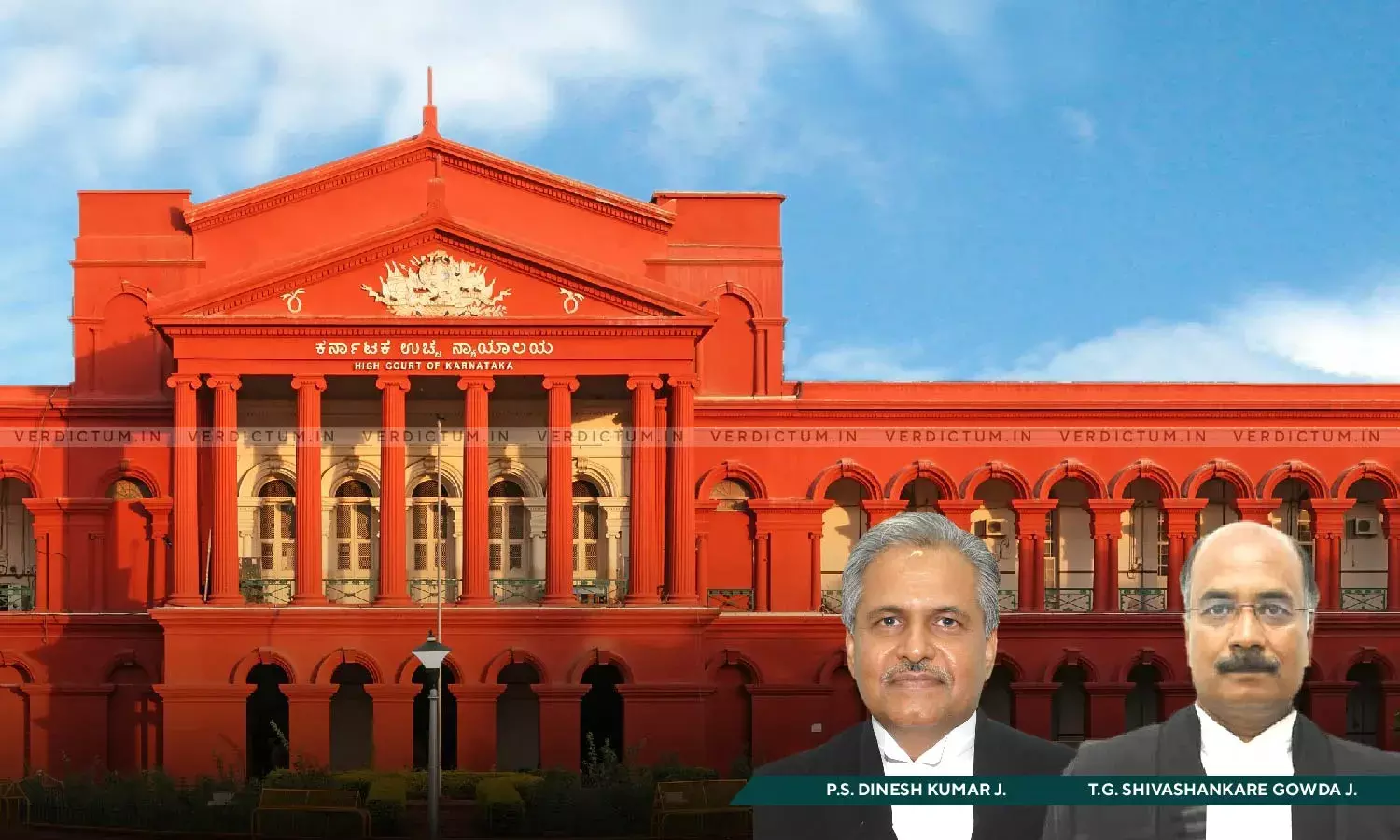“A Classic Case Of Speculative Litigation Causing Huge Loss Of Judicial Time”- Karnataka HC Reverses Specific Performance Judgment Against Trust
The Karnataka High Court has reversed a judgment of specific performance against a trust saying that it is a classic case of speculative litigation causing huge loss of judicial time.
An appeal was filed against the judgment and decree passed by the Additional City Civil and Sessions Judge decreeing the suit for specific performance of contract.
A Division Bench comprising Justice P.S. Dinesh Kumar and Justice T.G. Shivashankare Gowda held, “We may record that this is a classic case of speculative litigation causing huge loss of judicial time. The defendant Trust has been compelled to defend its cause for nearly 30 years. Therefore, in our considered view, this appeal deserves to be allowed with exemplary cost.”
The Bench put an additional cost of Rs. 5 lakhs on the legal representatives of the respondents.
Senior Advocate Uday Holla appeared on behalf of the appellant while Senior Advocates Shashi Kiran Shetty and S.P. Shankar appeared on behalf of the respondents.
Brief Facts -
An agriculturist (plaintiff) entered into an agreement with the appellant/defendant, a registered public charitable Trust which owned a large tract of agricultural property. Out of about 500 acres, 168.06 acres was a subject matter of the agreement. The said plaintiff and the Trust initially entered into an ‘Agreement to Sell’, whereunder the plaintiff had agreed to obtain the permission under Karnataka Land Reforms Act, 1961 and the Urban Land Ceiling and Regulation Act, 1976. Due to some complexities, he could not obtain the same and an 'Amended Sale Agreement' was entered into, whereunder the Trust had agreed to obtain the permissions. The plaintiff, in all, paid an advance sale consideration of Rs. 16,37,000/- and the consideration agreed between the parties was Rs. 17,500/- per acre.
The plaintiff was always ready and willing to pay the balance consideration and get the Sale Deed registered in his favour but the Trust failed to obtain the necessary permissions. While agreements were subsisting, the Trust sought to alienate the property compelling the plaintiff to bring the instant suit for specific performance. The Trust resisted the suit by filing written statement denying the plaint averments and contending that plaintiff was a Real Estate Agent and not an agriculturist. The third defendant was not the P.A. Holder of the Trust therefore, he could not have been authorized to execute any agreement. He had executed the agreement in his individual capacity without approval from the Trust. The Trial Court decreed the suit aggrieved by which the matter was before the High Court.
The High Court in view of the above facts noted, “It is first plaintiff’s case that he is in physical possession of 168.06 acres. In the cross-examination, it was suggested to him that he was not in the possession of the suit property and he has denied the same, but he has stated that APMC had acquired the property and the possession is with the APMC. Second plaintiff in his examination has stated that he was in the possession of the property from the year 1982.”
The Court said that though the suit is based on an agreement of the year 1982, the second plaintiff has claimed that he had given the entire sale consideration to Parameshwara.
“He has not chosen to enforce the agreement on his own. On the other hand, he has filed an application for impleadment in the year 2004, based on Assignment Deed alleged to have been executed by Parameshwara in 2002. Parameshwara has opposed the application denying the Assignment Deed”, further noted the Court.
The Court added that the second plaintiff who claims to be in possession has remained complacent with regard to the transaction which originated in the year 1982 for 22 years.
“The instant suit is one for specific performance of ‘Agreement to Sell’. The first agreement is not produced. The second agreement is not proved. Payment of consideration is not proved. Parameshwara has admitted that he has not even got a legal notice issued in a sale transaction of 168 acres of land in Bengaluru. The alleged second agreement is of the year 1982 and the instant suit is filed in 1994 after a lapse of 12 years. The suit has been decreed based on learned Trial Judge’s ‘inference’ and ‘presumption’ and therefore, unsustainable in law”, also observed the Court.
Accordingly, the High Court allowed the appeal and imposed an additional cost.
Cause Title- M/s. Jamnalal Bajaj Seva Trust v. Parameshwara & Ors.




